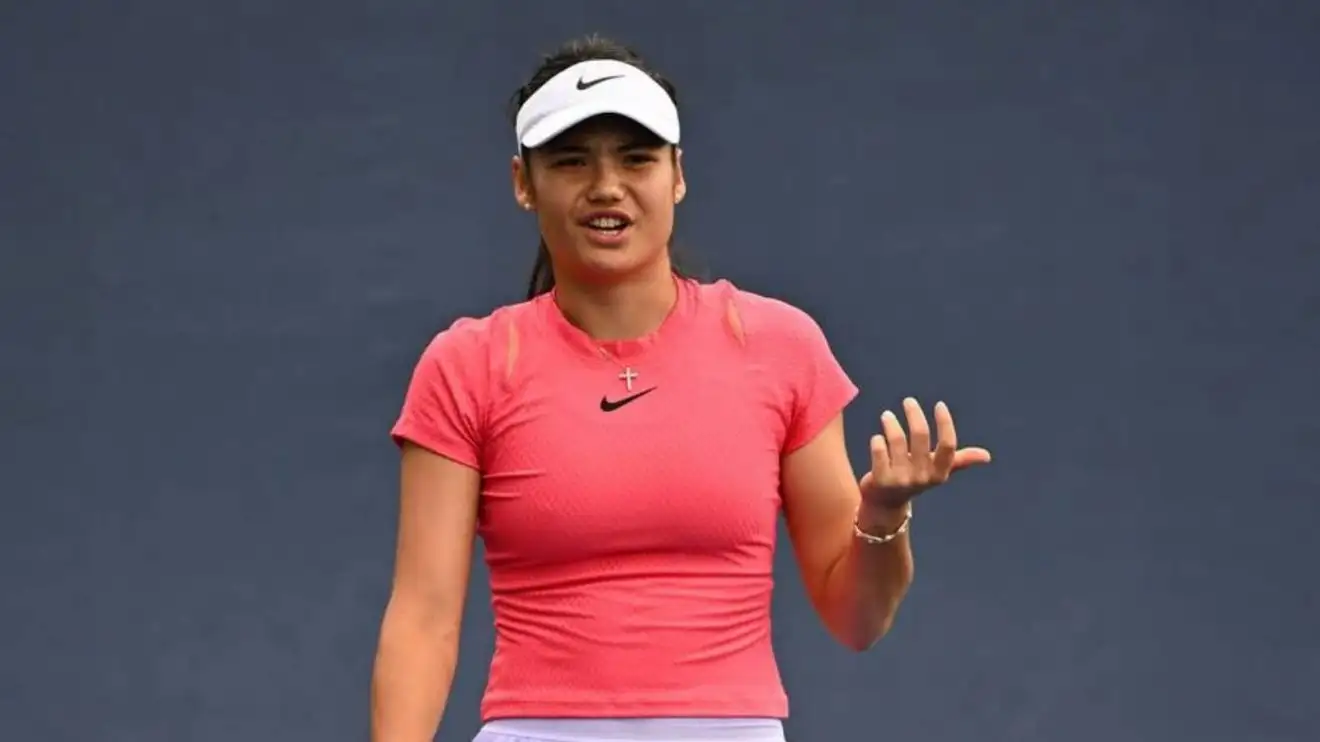
Emma Raducanu, the 2021 US Open champion, has recently found herself at the center of a heated discussion surrounding her tournament participation and ranking strategy. Former Wimbledon quarter-finalist Tamira Paszek has shared her insights on this topic, suggesting that if Raducanu were to compete in lower-ranked events, she would be “hunted” by her opponents. This assertion highlights the unique pressures that come with being a high-profile player, particularly after a meteoric rise to fame.
Since her stunning victory at the US Open, Raducanu has faced various challenges both on and off the court. After a promising run to the fourth round at Wimbledon in July 2024, she has expressed some regret over her scheduling decisions, admitting she might have benefited from playing more matches prior to major tournaments. Following her first-round exit at the US Open, Raducanu remarked, “I would have preferred to probably play a little bit more before coming into the US Open. When I have a lot of matches, everything feels automatic.”
Her comments underscore a fundamental truth in professional sports: match experience is invaluable. With every match played, a player not only sharpens their skills but also builds confidence and rhythm. Raducanu acknowledged this reality, stating, “I can learn from it and manage my schedule slightly differently.”
However, the discussion surrounding her decision not to compete in qualifying rounds at events like the French Open and the WTA 1000 tournament in Toronto has drawn scrutiny. Some reports suggest that her absence may be linked to strategic decisions made by her team, potentially influenced by her sponsors’ interests. The concern here is that high-profile sponsors may prefer their ambassadors to compete in marquee events rather than in qualifying matches where they might risk lower visibility and potential losses against lower-ranked players.
Paszek, who herself has navigated the ups and downs of professional tennis, offers a more nuanced perspective on Raducanu’s situation. She emphasizes that while it might seem straightforward for a player of Raducanu’s stature to enter lower-ranked tournaments to accumulate points and regain form, the reality is far more complex. “It’s easy to say she should play this tournament just to get points or matches,” Paszek stated. “But if she played at a lower level, she would be hunted. I have felt this.”
What Paszek refers to is the phenomenon where established players become targets for lower-ranked competitors eager to prove themselves. This dynamic can create immense pressure, as opponents view matches against higher-ranked players as opportunities for significant upsets. “People see you as a target, and that is a tough challenge,” Paszek explained. This is particularly relevant for Raducanu, who, after her rapid rise to fame, must contend with the expectations that come with her accomplishments.
Paszek also highlighted the impact of coaching changes on a player’s journey. Following her US Open victory, Raducanu underwent a series of changes in her coaching team, which can be destabilizing for any athlete. “When you have experienced success like that and winning a Grand Slam, it’s always going to be tough,” Paszek noted. “There were a lot of changes after that in her coaching team. I get it; I have been through a lot of coaching changes.”
These transitions can lead to confusion and a loss of identity on the court. Paszek reflected on her own experiences, saying, “The input of so many voices came to me, and in the end, I was so confused. Who am I? What kind of player should I be?” This identity crisis is a common challenge for athletes who experience sudden success, and it can take time to find a stable footing amidst the changes.
As Raducanu looks ahead to the 2025 season, her current ranking within the top 60 of the WTA ensures her entry into significant tournaments. However, her ranking could be jeopardized if she continues to face injuries or struggles with performance. In such cases, she might have to reconsider her strategy and possibly participate in lower-ranked events to regain form and confidence.
Paszek’s reflections serve as a reminder of the complexities that elite athletes navigate. The pressure to perform, the scrutiny from the media and fans, and the challenges of maintaining a consistent level of play are all part of the landscape. For Raducanu, who has been thrust into the spotlight at a young age, finding a balance between her professional obligations and her personal growth as a player will be crucial.
Ultimately, the conversation surrounding Raducanu and her tournament choices speaks to a larger narrative about the pressures faced by young athletes in the public eye. As she continues her career, the path ahead may be fraught with challenges, but with the right support and strategic decisions, she has the potential to reclaim her place among the sport’s elite. Whether through lower-ranked tournaments or by finding the right competitive rhythm, Raducanu’s journey remains one to watch as she navigates the ups and downs of professional tennis.
Leave a Reply